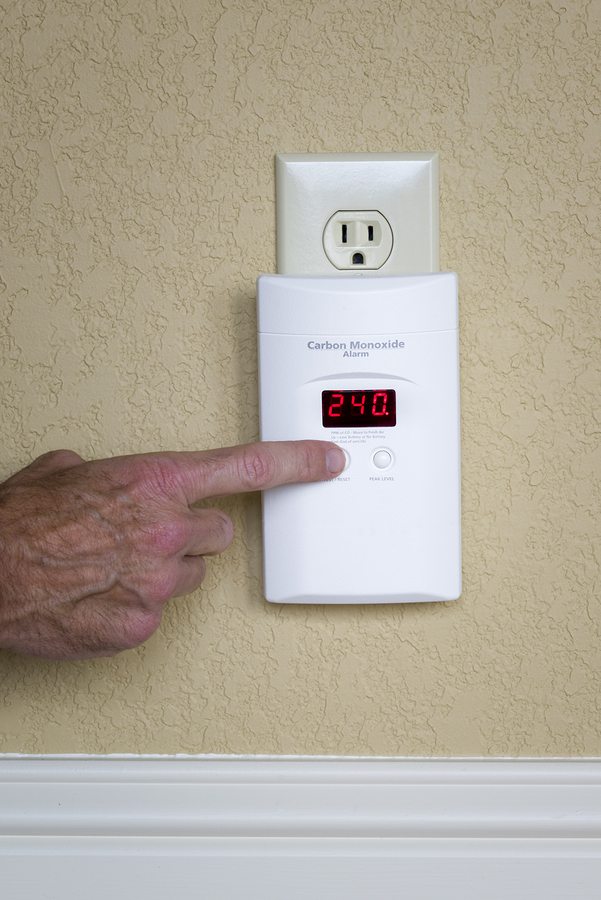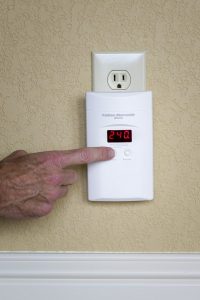
What Family Caregivers Need to Know About Carbon Monoxide
Is your elderly parent’s home safe from carbon monoxide? Thousands of people get sick or die from carbon monoxide poisoning each year. The gas is tasteless, odorless, and invisible. It is also very poisonous and can be a serious problem in homes, especially in the winter. Family caregivers need to make sure their elderly mom or dad is not at risk of carbon monoxide poisoning as winter approaches.

What is Carbon Monoxide Poisoning?
Carbon monoxide is the gas that develops from combustion with sources like automobile engines, portable propane heaters, furnaces, fireplaces, barbecue grills, water heaters, and more. When the gas condenses in one place without much ventilation, it can poison anyone that breathes it in. Because windows and doors are generally closed during the winter, carbon monoxide poisoning increases during this time.
What are Carbon Monoxide Poisoning Symptoms?
The symptoms for carbon monoxide poisoning can vary in intensity depending on the exposure level. Generally, symptoms include dizziness, irritability, headaches, shortness of breath, chest pain, poor coordination, nausea, vomiting, and an abnormal heartbeat. Because these symptoms are the same as many other age-related diseases and conditions, it can be hard for family caregivers to distinguish carbon monoxide poisoning in elderly people from other illnesses.
Over the long term, a person’s mental abilities can be impaired. They can suffer from brain damage, fall into a coma, or die with too much exposure to carbon monoxide. If a family caregiver suspects their elderly parent is suffering with carbon monoxide poisoning, they need to immediately open the windows or get the senior out into the fresh air and call emergency services.
How to Prevent Carbon Monoxide Poisoning in Seniors.
Knowing how to prevent and detect carbon monoxide is the best way to help elderly parents avoid carbon monoxide poisoning. Family caregivers should install carbon monoxide detectors on every level of their elderly parent’s house. They should also replace the batteries regularly to ensure there will always be a warning signal if carbon monoxide is collecting.
Other precautions that family caregivers can take include regular inspections and proper maintenance of water heaters and furnaces. Caregivers should also arrange for chimneys and flues to be inspected each year and cleaned when recommended. They should never allow propane heaters or grills running in the house. Caregivers can check with their local health department for additional ways they can avoid carbon monoxide in their aging parent’s home.
Most people don’t realize that even low concentrations of carbon monoxide gas can cause indoor air quality to plummet. Limited exposure is enough to negatively impact a person’s health, especially an elderly adult. To protect their loved one from carbon monoxide poisoning, family caregivers need to be vigilant this winter about following carbon monoxide safety rules.
Contact your doctor, local health department or the Department of Health and Senior Services if you have questions about carbon monoxide poisoning.

